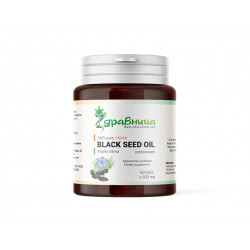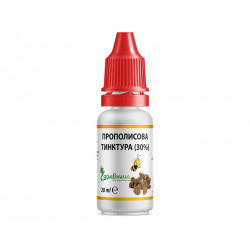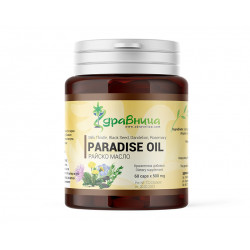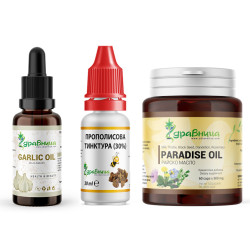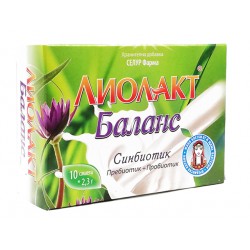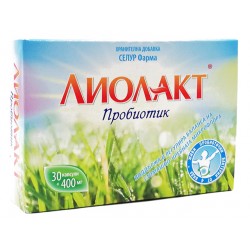The bacterium Helicobacter pylori was discovered in 1982 by Barry Marshall and John Robin Warren, Australian scientists who in 2005 received the Nobel Prize in Medicine for their discovery.
What is Helicobacter pylori?
Helicobacter pylori is a gram-negative bacterium that lives in the stomach and is responsible for a very wide range of symptoms that we experience on a daily basis. Helico comes from the Latin word for spiral, which is the shape of the bacteria itself, and pylori from an anatomical part of the stomach. The species is adapted to life in the stomach - at high acidity, because it has enzymes that neutralize acidity, and due to its specific shape, it can easily pass the barrier of the stomach epithelium. This makes it difficult for the immune system to recognize it. It is transmitted through close contact and the use of common household utensils.
The bacterium is rightly considered one of the most persistent. Helicobacter pylori has many "innate" degrees of protection (pathogenicity factors) - it secretes urease and several other enzymes that protect it from the aggressive environment of the stomach and is able to form microbial biofilms that protect it from the effects of antibiotics and immune defenses body mechanisms.
In addition, Helicobacter pylori is very diverse. Many strains of this bacterium have been discovered, each with its own "character" and behavior. Some can be conditionally classified as relatively "calm", while others are very aggressive.
What are the symptoms of Helicobacter pylori infection?
Helicobacter pylori infection is often asymptomatic but can cause damage to the stomach lining and lead to ulcers. The most common symptoms include dull or burning abdominal pain, bloating, unexplained weight loss, nausea, vomiting, belching, and decreased appetite.
How is Helicobacter pylori infection diagnosed?
Methods for the study of Helicobacter pylori /non-invasive, laboratory/. One of the most accurate tests is the urea breath test. Another method is a test for Helicobacter in feces. It can also be examined with serological methods for the presence of IgG and IgM antibodies to Helicobacter pylori.
How is Helicobacter pylori infection treated?
Treatment of Helicobacter pylori infection begins with a strict diet, which is a major component in fighting the bacterium. It is important to avoid foods that can create favorable conditions for the bacteria to thrive or irritate the already damaged stomach lining. This includes sweet, refined, and spicy foods, as well as fatty foods that increase inflammation. Alcohol and hot drinks are also contraindicated, as they can weaken the body's ability to fight the infection and increase the acidity in the stomach. In addition, foods such as sugar, dairy products, red meat, coffee, and chocolate should also be avoided. It is useful to include products rich in vitamin C, which help to strengthen the immune system and clear the body of the bacteria.
In addition to diet, drug therapy usually includes antibiotics to kill the bacteria and proton pump inhibitors that reduce stomach acid to facilitate healing. After completing the course of treatment, conducting a confirmatory test is key to assessing the successful cure of the infection.
What are alternative methods to fight Helicobacter pylori?
However, when the bacteria is stubborn or resistant to the antibiotic, natural remedies come to the rescue. In the following lines, we will provide information on effective natural methods that can help fight Helicobacter pylori, offering an alternative to traditional medical approaches.
Mastic resin (Mastics gum) - Mastic relieves stomach problems, and is used as an aid in Helicobacter pylori infections. In addition to chewing gum /without swallowing/, mastic crystals can be dissolved with cow butter - 100 g together with 1 tsp of mastic. It can be taken 1 teaspoon two or three times a day.
Other effective natural remedies include long-term intake of garlic, propolis, and black seed (black cumin) oil, which can be taken in oil or capsule form. For optimal results, intake should last a minimum of three months. It is recommended to use garlic and propolis in the first month, then from the second month black seed oil should also be included. Especially suitable is the use of heavenly oil, which combines oils of milk thistle, black cumin, dandelion, and rosemary, offering strong support in the fight against Helicobacter pylori.
Taking probiotics for a minimum of three months is an essential component of therapy. During this time, it is recommended to increase the consumption of foods rich in fiber. Fiber serves as "food" for the beneficial bacteria in the gut, which helps them multiply and strengthens the intestinal flora, making it easier to fight infection.




